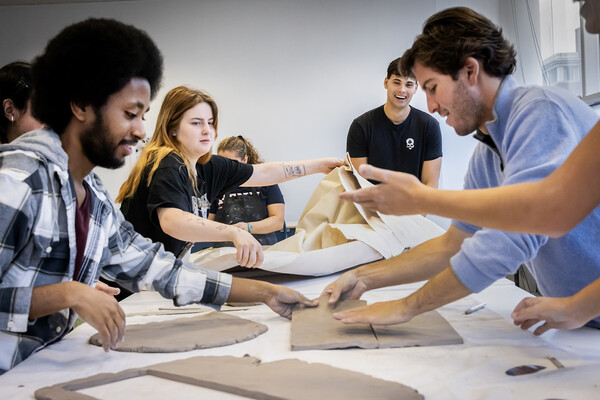Penn Dental prof weighs in on preventive antibiotics
Every year, more than 1 million Americans have surgery to replace a joint, such as a hip or knee. One of the biggest risks of these procedures is infection.
But according to a review conducted in 2015 for the American Dental Association (ADA), led by Thomas Sollecito, chair and professor of the Department of Oral Medicine in the School of Dental Medicine and chair of the ADA Council on Scientific Affairs, that doesn’t mean it is always necessary for people with joint replacements to receive antibiotics before dental treatment to prevent prosthetic joint infection.
This practice arose in the 1990s and early 2000s, after a few studies showed indirect evidence that bacteria from the mouth could enter the bloodstream following dental treatment. The concern was that these bacteria could theoretically lead to prosthetic joint infections. But many experts questioned the significance of these findings.
In 2012, the ADA, along with the American Association of Orthopedic Surgeons, conducted a systematic review and published a guideline about the practice that read, “The practitioner might consider discontinuing the practice of routinely prescribing prophylactic antibiotics for patients with hip and knee prosthetic joint implants undergoing dental procedures.”
The guideline, however, remained confusing for many practitioners.
“That ‘might consider discontinuing’ language left dentists in a real quandary as to what to do,” Sollecito says.
The 2015 review, published in the January 2015 issue of the Journal of the American Dental Association, picked up where the 2012 study left off. Sollecito and colleagues re-examined the scientific studies that had been reviewed in 2012 and also considered a few additional papers that the earlier report had not considered, that did not demonstrate direct evidence that dental procedures led to prosthetic joint infections..
In fact, none of the studies the researchers looked at showed a clinically significant association that a dental procedure causes prosthetic joint infection.
”We also considered the consequences arising from overusing antibiotics,” Sollecito says. “If there isn’t a clear link suggesting that dental treatment causes prosthetic joint infections, then it is not advisable to place a patient at risk for complications arising from this practice.”
Based on their findings, the ADA issued a revised clinical practice guideline saying that, in general, it is not recommended that patients with joint replacements receive antibiotics before dental procedures. Furthermore, work is being conducted to consider those very few patients (based on comorbid disease) who might be considered for prophylaxis. The result of this clinical practice guideline should decrease the overall exposure to antibiotics for the individual and less antibiotic exposure for the population.
To listen to Sollecito and a colleague discuss this recommendation, visit the ADA website.






